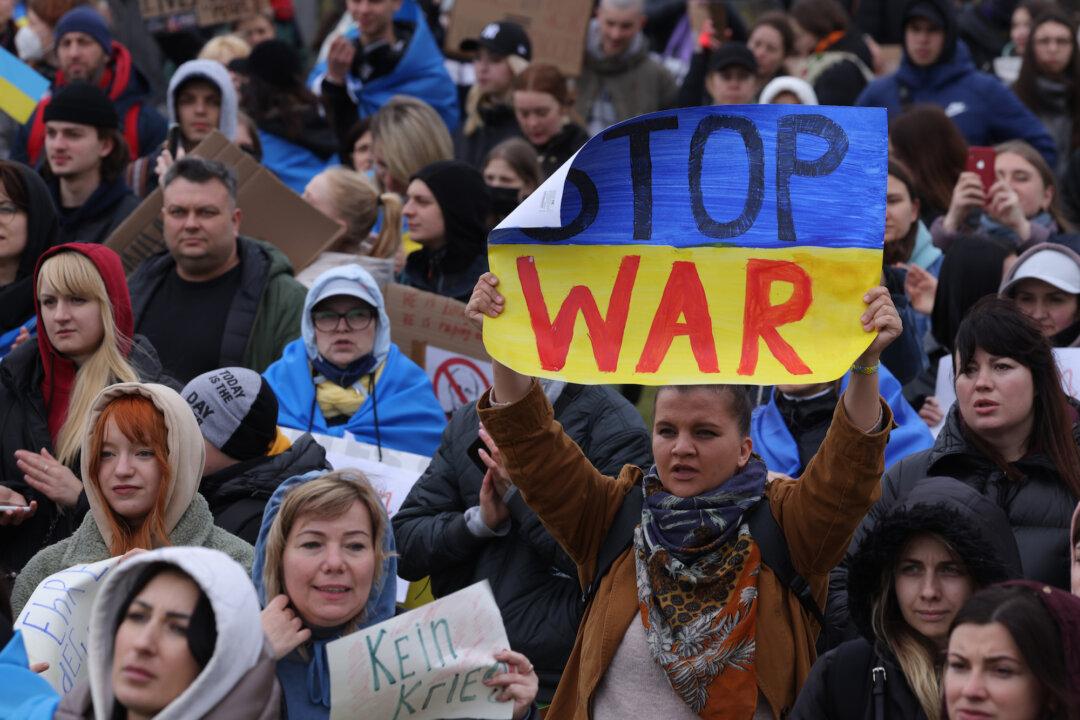Nations in the European Union approved an embargo on Russian coal and closed the bloc’s ports to Russian vessels as part of a fifth round of sanctions following allegations of Russian soldiers executing civilians in Ukraine.
The French EU Council presidency said in a series of tweets on April 8 that the latest “very substantial package” includes “sanctions against oligarchs, Russian propaganda actors, members of the security and military apparatus and entities in the industrial and technological sector linked to the Russian aggression against Ukraine.”





